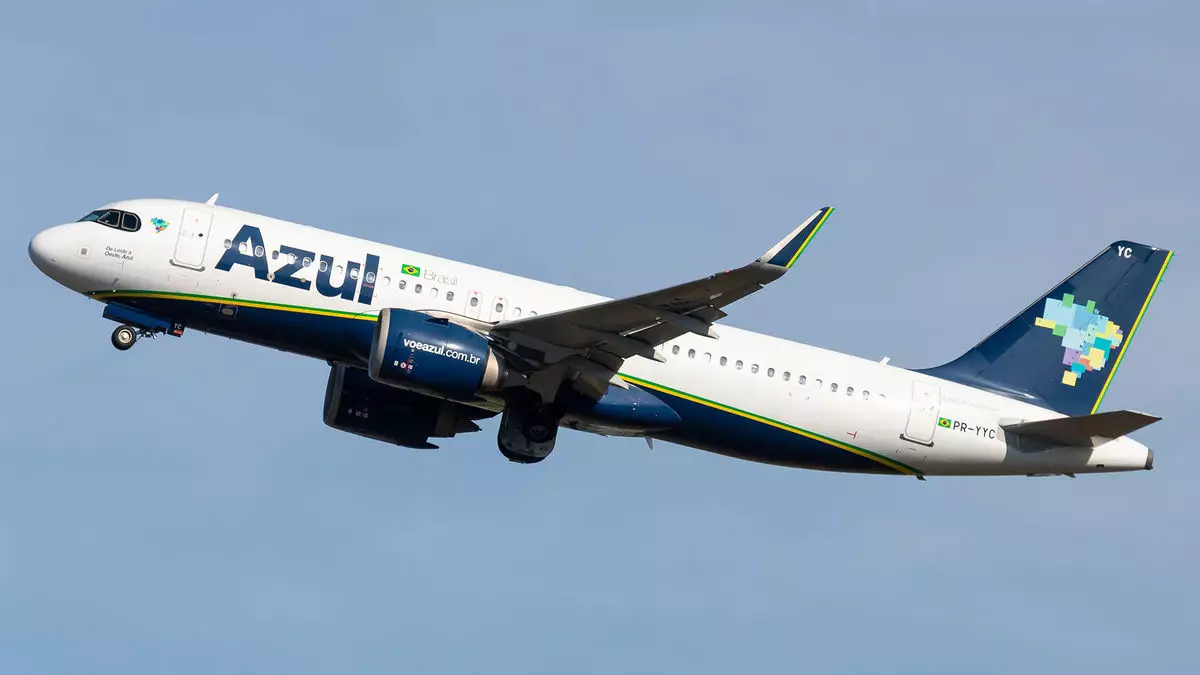The Brazilian aviation industry is undergoing a seismic shift as carriers adapt to the tumultuous aftermath of the COVID-19 pandemic. Among these dynamic changes, Azul Airlines has taken a courageous step forward by initiating Chapter 11 bankruptcy protection. Contrary to the bleak implications often associated with bankruptcy, Azul’s strategic maneuver is not merely a last resort; it’s a calculated effort towards revitalization and growth in an increasingly competitive market. With the backing of significant partners and investors, Azul plans to emerge from this phase more resilient than ever, affirming its position in the aviation landscape of Brazil and beyond.
A Strategic Pivot with Powerful Allies
Entering bankruptcy does not equate to surrender. Azul’s move is backed by a substantial prearranged restructuring package featuring critical support from United Airlines, alongside a significant show of faith from American Airlines. While many might question the viability of launching into bankruptcy, Azul’s proactive approach underscores a robust belief in its business model and future prospects. The planned restructuring aims at erasing over $2 billion of debt while providing the airline with sound liquidity through $670 million during this transitional period.
American Airlines’ engagement is particularly noteworthy, as it had not previously been part of Azul’s strategic alliances. This unforeseen partnership suggests a shift in alliances within the airline market. From a market position of limited collaboration, this move could indicate a broader trend of airlines realizing that strategic partnerships can fortify their position against economic uncertainties. Azul’s calculated collaboration with both United and American isn’t merely about financial backing; it is a synergistic approach designed to optimize network efficiency and customer value.
Honoring Commitments Amidst Turmoil
Azul is committed to maintaining operations even as it undergoes this significant transition. It has promised to honor all existing customer tickets, loyalty programs, and agency commissions, which speaks volumes about its customer-centric philosophy. Many companies facing bankruptcy opt to cut ties with commitments to save costs, yet Azul’s choice signifies a powerful message: it values its customers. As they continue to service eight routes to the U.S. this month, customers can expect operational continuity, contrasting the typical narrative associated with bankruptcy processes.
Such fidelity to customer service not only helps maintain brand loyalty but also positions Azul favorably once it emerges from the restructuring. While many might focus exclusively on the numbers involved, Azul’s leaders understand that rebuilding trust is equally crucial for long-term success.
Financial Innovations for Future Growth
As part of its restructuring strategy, Azul is poised to raise $650 million through discounted share offerings aimed at existing investors. This financial ingenuity underscores a forward-thinking mindset, focusing on rebuilding capital while simultaneously addressing creditors. The commitment of American and United to invest additional equity in the range of $200 to $300 million further substantiates the confidence stakeholders have in Azul’s transformative plans.
Corporate restructuring is not just an exercise in crisis management; it’s about redefining operational paradigms to thrive in a new world. Azul’s leaders recognize that to emerge as a “robust, resilient, industry-leading airline,” the restructuring must transcend beyond financial metrics, focusing on overall corporate health and an innovative service framework that resonates with travelers.
A New Era for Brazilian Aviation?
Azul’s ambitions are bolstered by its strategic negotiations with rival Gol, which, despite its own ongoing restructuring, could significantly reshape Brazil’s airline dynamics should a merger occur. This potential alliance could yield a powerhouse in the South American aviation space, offering unrivaled connectivity and choice to travelers. As Gol prepares to exit its Chapter 11 process, the implications of such strategic moves are profound, suggesting a regional consolidation that may ultimately benefit consumers through enhanced service offerings.
With these key developments, airlines like Azul are not merely navigating challenges but are forging ahead with a compelling vision for the future of travel in South America. The intersection of innovative business tactics and a focus on customer loyalty places Azul in a position of strength, setting the stage for a new chapter in Brazilian aviation.
In an industry long plagued by instability, Azul Airlines is taking an authentic approach to not just survive, but thrive. It exemplifies the idea that sometimes, strategic risk can yield unprecedented rewards.


Leave a Reply